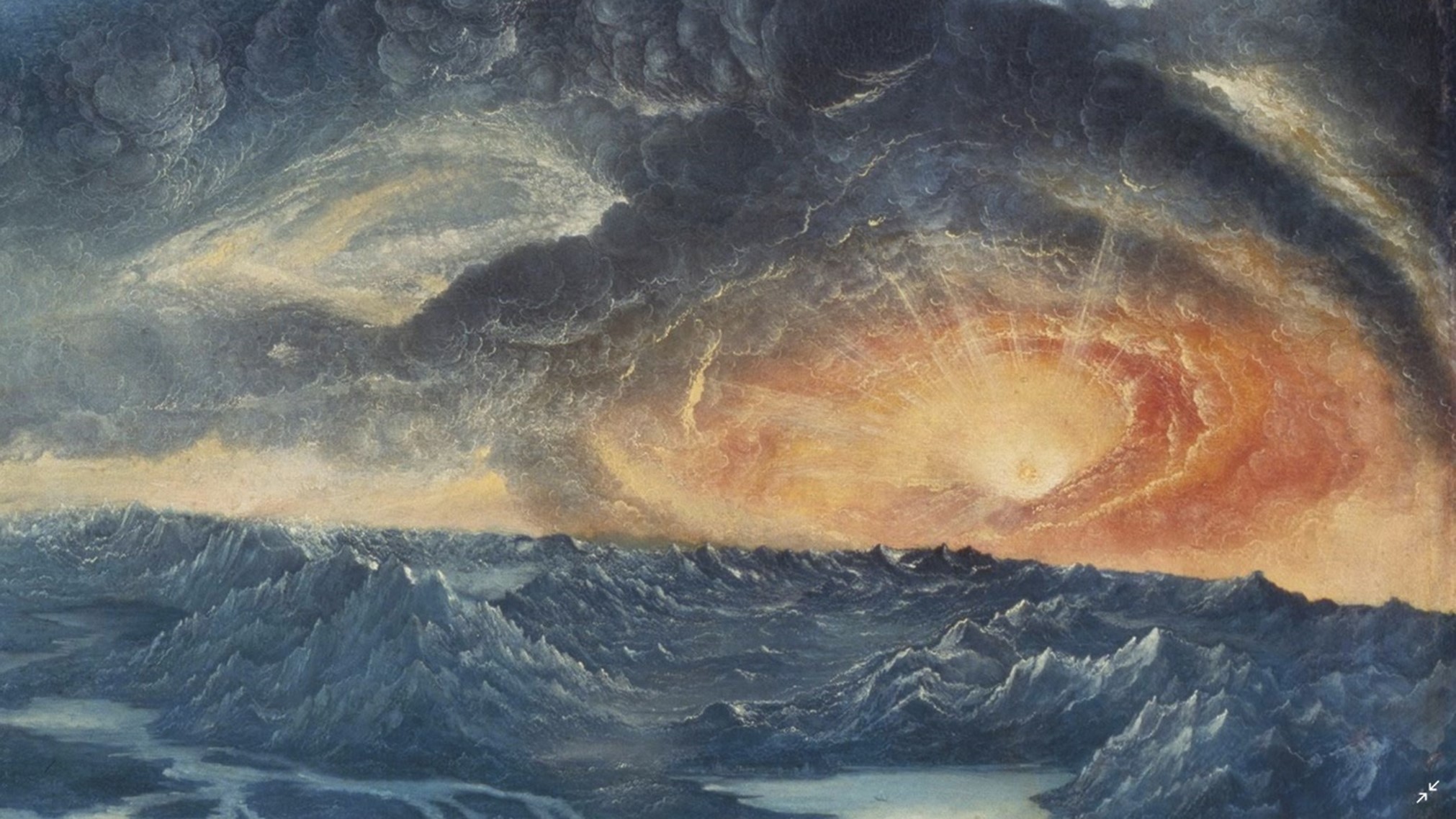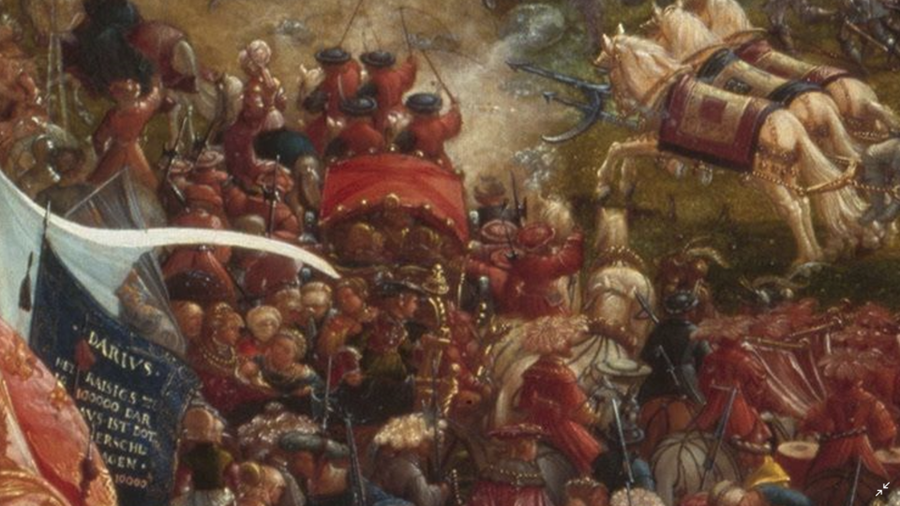The Battle of Alexander at Issus, by Albrecht Altdorfer (1529, oil on canvas, 158 x 120 cm)

The Battle of Alexander at Issus, by Albrecht Altdorfer (1529, oil on canvas, 158 x 120 cm)

This glorious painting was commissioned by Duke William IV of Bavaria for his palace in Munich.
It depicts the legendary Battle of Issus between Alexander the Great and Darius III of Persia, which resulted in a Macedonian victory.
It is a supreme example of the "world landscape" style of painting, an unusual genre popular in the 15th and 16th centuries.
World landscapes show an enormous geographical scene, often with mountains and oceans, using unrealistic perspective and tiny human figures.
It is not only interesting for its perfection of the world landscape, but also for its narrative.
This painting was completed in the same year as the first Ottoman siege of Vienna. Unsurprisingly, it is full of political and religious subtext.
Let's look at some details.
Notice that the soldiers look like Medieval knights.
That is NOT how armies looked in the 4th century B.C. This wasn't mere ignorance by Altdorfer.
It's also a great example of anachronism in art. Turns out that it's not just Hollywood who are guilty of historical inaccuracy.

Look at the strange skyscape.
This is positively apocalyptic. It feels like the Day of Judgment.

This is the Tower of Babel hiding in the background, representing Babylon and Persia, the homeland of Darius and his armies.
Notice how dark and hellish the place looks.
Somehow reminds you of Mordor...

I also love that the title of the painting is part of the painting itself. One of several "meta" elements, including that the armies both hold banners listing the number of troops and future casualties.

"Alexander the Great defeating the last Darius, after 100,000 infantry and more than 10,000 cavalrymen had been killed amongst the ranks of the Persians. Whilst King Darius was able to flee with no more than 1,000 horsemen, his mother, wife, and children were taken prisoner."

And here notice that Alexander the Great's Macedonian armies appear to be carrying the flag of the Holy Roman Empire.
Highly intentional anachronism.

This is what I love about the World Landscape style.
Here we can see the entire eastern Mediterranean basin, including Cyprus in the middle.
Far from realistic - but that's the point. It produces a heightened, dramatic, Biblical atmosphere.

Also notice how the Persian soldiers are wearing turbans and dressed - broadly - like Ottoman soldiers.
Altdorfer and his patron Duke William of Bavaria were sending a message here.

For another great example of the world landscape style, look at The Martyrdom of St. Catherine, by Joachim Patinir (c.1515)

A couple more examples from the great and inimitable Brueghel the Elder.
The Procession to Calvary (1564)
